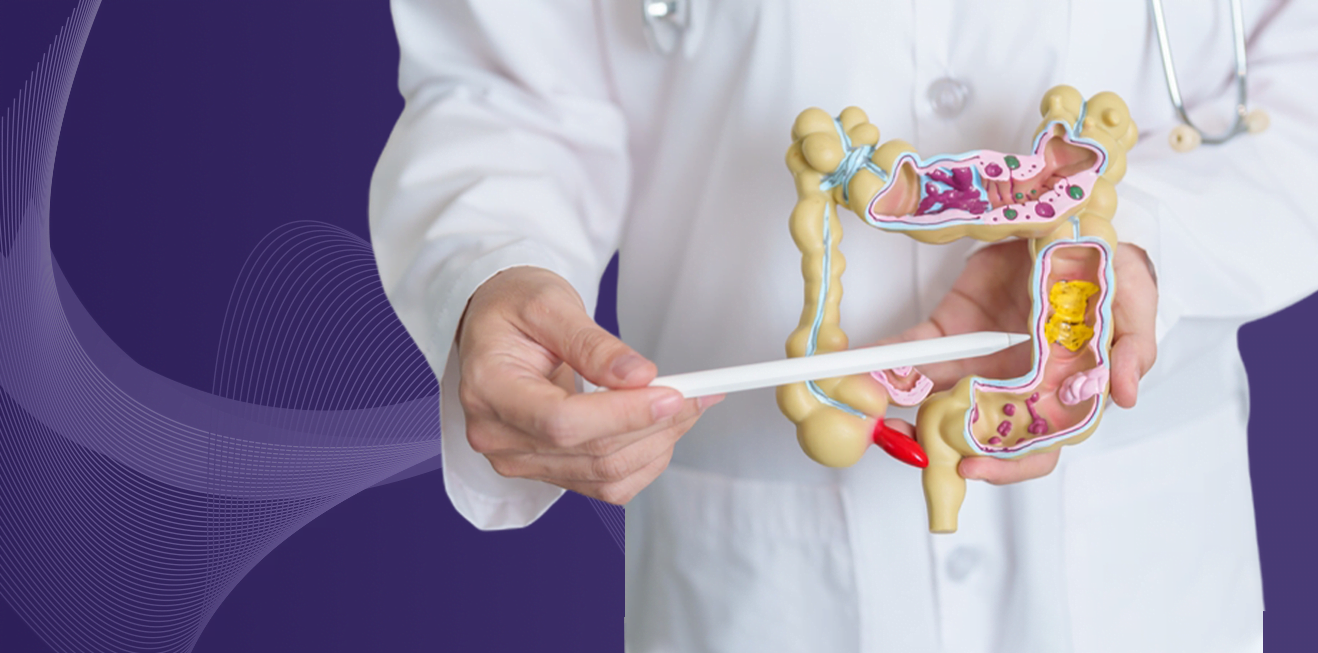Colonoscopy

What is a colonoscopy?
Colonoscopy is an examination that allows the doctor to see the inside of the large intestine using a long, flexible tube equipped with a camera that is inserted through the rectum.
Diagnostic uses:
Used as an investigation for :
- Unexplained diarrhea
- Chronic constipation
- Persistent abdominal pain
- Blood in the stool
- Unexplained changes in stool color
- Unexplained weight loss

A doctor may recommend a colonoscopy if they suspect the presence of certain conditions, such as:
- colon cancer
- ulcerative colitis
- Crohn's disease
- polyps
- peptic ulcers
- familial adenomatous polyposis.
Therapeutic uses:
- Removing polyps during a colonoscopy.
- Endoscopic mucosal resection of large polyps
- Taking biopsies of abnormal tissue
- Removing polyps early to prevent colon cancer
- The medical community advises anyone at risk of colon cancer to begin having a colonoscopy starting at age 45 and every 10 years. A person may need to start colonoscopy at a younger age if their risk of colon cancer is greater.
to prepare:
To empty the colon for a clearer view during the endoscopy, the doctor may recommend the following:
1- Follow a special diet
Eat light, easy-to-digest foods such as 3-4 days before the procedure:
- bread, pasta, rice.
- peeled fruits,
- well-cooked vegetables
- lean meats
- eggs.
- Raw vegetables.
2- Fasting
- solid foods the day before the operation.
- Drink only clear liquids the day before the operation.
- Plenty of liquids without milk and home-made, well-filtered juices.
- Avoid drinking any red or blue colored drinks.
- Refrain from eating or drinking anything that the doctor has not recommended 4 hours before the procedure.
3- Colon emptying:
Taking laxatives to empty the colon.
4- Inform the doctor of any health problems or medications taken at least a week before the procedure.
- Diabetes and blood pressure medications
- Heart medications
- Vitamins and iron supplements
- Blood thinners
- Anticoagulants
- Non-steroidal anti-inflammatory drugs
doctor may recommend adjusting doses or stopping taking some medications temporarily.
Procedure:
The operation lasts from 30 to 60 minutes.
- Receiving medications intravenously for relaxation.
- Lie on your left side.
- The doctor inserts a long, flexible tube through the rectum and passes it through the large intestine.
- After completion, the doctor pulls the tube out of the body.
After colonoscopy:
- After the operation, wait for 30 minutes until you fully regain consciousness.
- patient may feel some pain and cramps in the abdomen.
Complications:
- Colonoscopy is a very safe procedure and there are rarely any complications or side effects such as:
- Abdominal pain or discomfort
- Bleeding
- Sensitivity to anesthesia
- Perforation of the intestine
- Severe dehydration



